It may soon be illegal to discriminate against mainland Chinese in Hong Kong
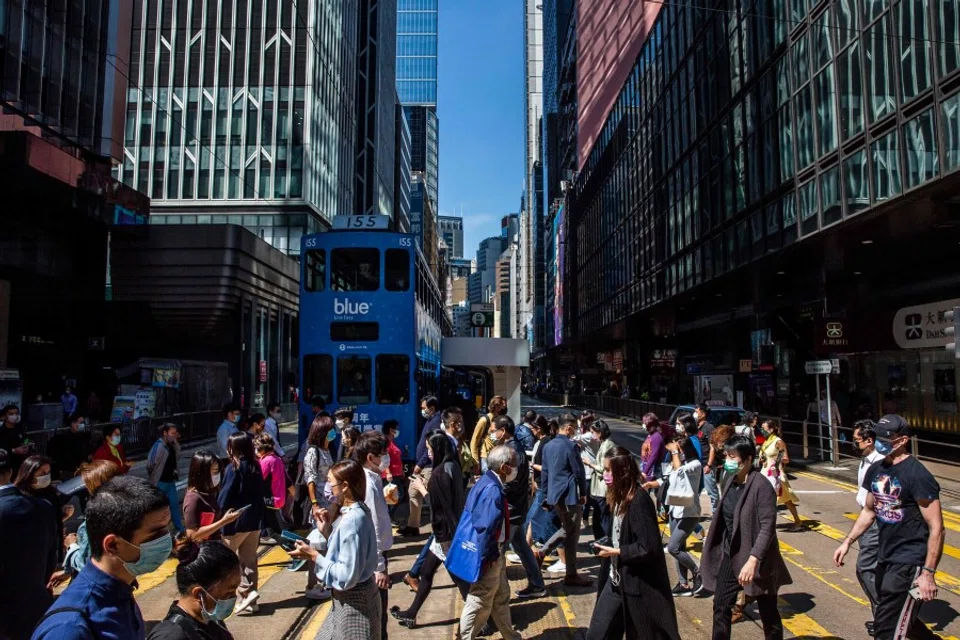
In recent years, the friction and conflict between the people of Hong Kong and mainland China has been intensifying, and Hong Kongers' discrimination against mainland Chinese is clearly getting worse.
Hong Kong's Equal Opportunities Commission (EOC) announced early this year that it received 492 related complaints over the past three years, with 69, 96 and 327 cases each year, which is a fourfold increase in complaints within three years.
Pushed strongly by the pro-establishment camp, the Hong Kong government has finally made a breakthrough in legislative efforts to protect mainland Chinese in Hong Kong against discrimination. On 23 October, EOC chair Ricky Chu announced that the commission has made several proposals to the authorities, including adding clauses into the Race Discrimination Ordinance against people of the same ethnicity discriminating against each other.
With a chance of the next Hong Kong government initiating and passing relevant legislation after taking office in July next year, it will become illegal for Hong Kongers to discriminate against mainland Chinese.
Before 1997, the economy of mainland China lagged far behind that of Hong Kong, and many Hong Kongers looked down on mainland Chinese.
Seeds of discord have been there for a while
Looking globally, each society has locals discriminating against foreigners to varying degrees. This applies to Hong Kongers and mainland Chinese as well, even though they share the same ethnicity. Before 1997, the economy of mainland China lagged far behind that of Hong Kong, and many Hong Kongers looked down on mainland Chinese. Mainland Chinese who migrated to Hong Kong were often discriminated against by the locals.
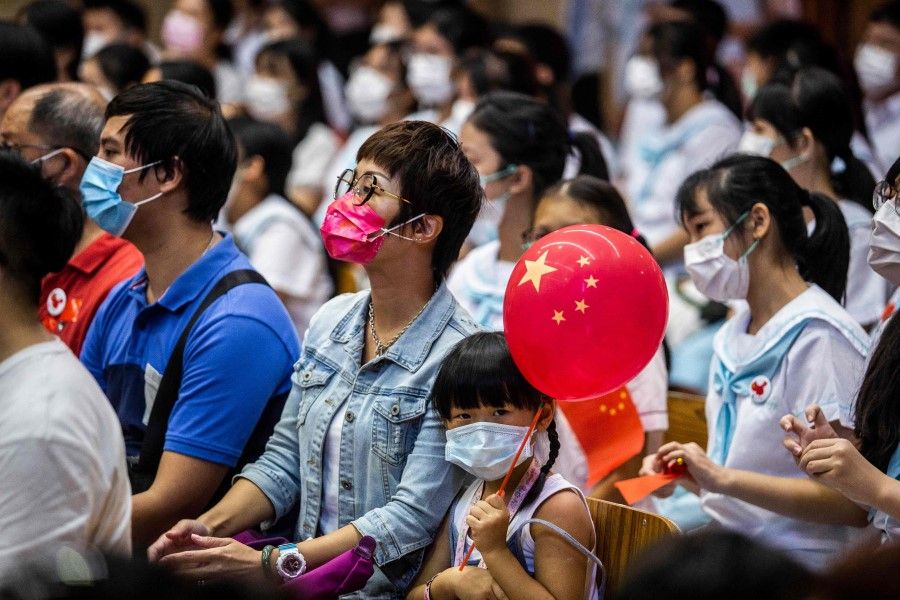
For a period, Hong Kongers derisively called new migrants from mainland China "Ah Chan". And in the 1990s, the popular Hong Kong movie Her Fatal Ways (《表姐,你好嘢!》) added to Hong Kongers' negative perceptions of mainland Chinese.
But from around 2010, Hong Kongers' discrimination against mainland Chinese got worse again, with some people referring to mainland Chinese as "locusts".
After 1997, derogatory slang terms like Ah Chan faded from Hong Kong for a while. But from around 2010, Hong Kongers' discrimination against mainland Chinese got worse again, with some people referring to mainland Chinese as "locusts".
The sudden resurgence of discrimination against mainland Chinese has a lot to do with the Individual Visit Scheme allowing travellers from Mainland China to visit Hong Kong and Macau on an individual basis, as opposed to only with business visas or group tours.
When the Chinese central government implemented this scheme in 2003, initially it did bring significant economic benefits, but it also became a double-edged sword. Mainland Chinese swarmed to tiny Hong Kong, pushing up prices and taking up everyday resources from locals, giving rise to problems such as "snatching" maternity beds and milk powder, which made Hong Kongers increasingly unhappy.
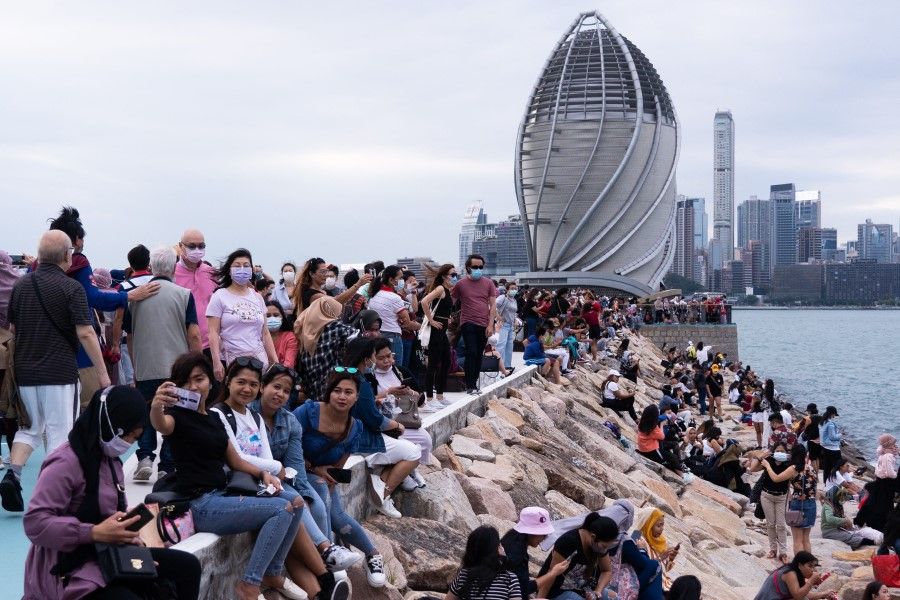
At the same time, the Hong Kong government was passive in handling these issues, and Hong Kongers gradually shifted their unhappiness from the Hong Kong government to the central government and travellers from mainland China.
With the growth of the mainland Chinese economy, some mainland Chinese became rich and obnoxious and engaged in uncivilised behaviour in Hong Kong, deepening Hong Kongers' hostility against them, as the friction between the Hong Kongers and mainland Chinese worsened.
Before the Hong Kong government could resolve the aforementioned problems in a timely manner, the Occupy Central movement broke out in 2014. A failed attempt to achieve universal suffrage also resulted in some Hong Kongers directing their anger towards the mainlanders.
To win votes, pro-democracy political parties became more radical - on the one hand emphasising universal values but on the other hand echoing the right-wing populists who discriminate against mainlanders, resulting in more and more discriminatory acts against the mainland Chinese in Hong Kong society.
Estrangement of young Hong Kongers from their mainland counterparts
At first, the conflict between mainlanders and Hong Kongers could be resolved through the shared culture that they have. However, the younger generation of Hong Kongers are mostly third generation immigrants who do not identify with the mainland. Under the influence of online incitement, some of them have become more xenophobic and gained a greater sense of local consciousness.
As a result, from discriminating against the mainlanders in the initial stages, they are now going to the extreme of refusing to admit that they are Chinese, and even seeking to achieve Hong Kong independence.
...even when I received a call from a mainland Chinese friend when I was commuting, I would quietly tell them that I would return their call after I alighted. This was because I was worried that Hong Kongers would mistake me for a mainlander and act violently towards me.
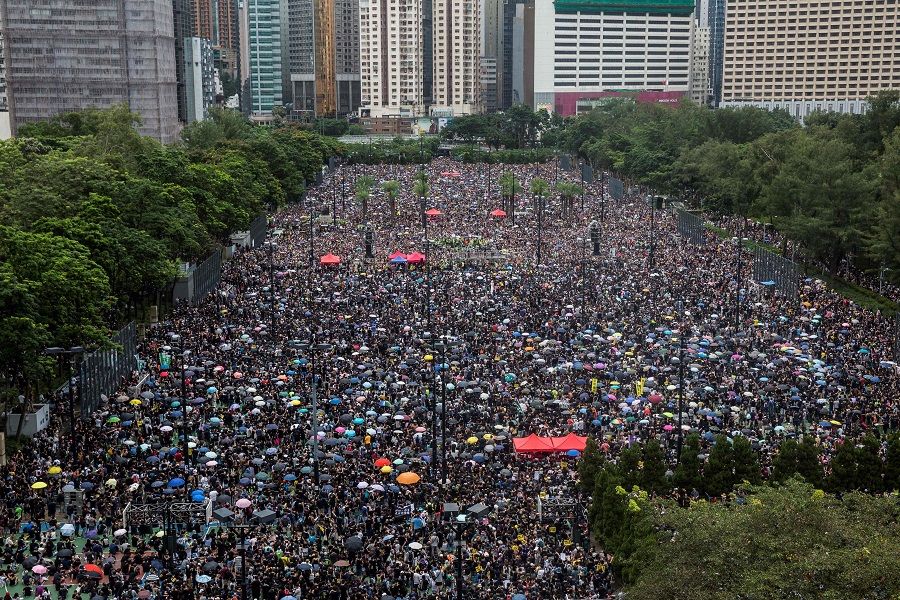
The massive 2019-2020 Hong Kong protests as a result of the controversial amendment bill on extradition pushed anti-mainland China sentiments in Hong Kong to its peak. During that period, no matter how hard mainland Chinese tourists or new arrivals in Hong Kong tried to stay low, they would often be hated and rebuked by Hong Kongers simply because they spoke putonghua. Worried about their personal safety, many mainland Chinese students in Hong Kong quickly left the SAR.
When the situation was at its worst back then, even when I received a call from a mainland Chinese friend when I was commuting, I would quietly tell them that I would return their call after I alighted. This was because I was worried that Hong Kongers would mistake me for a mainlander and act violently towards me.
When the Covid-19 pandemic broke out in Hong Kong early last year, while anti-government protests subsided, Hong Kongers' hatred towards mainlanders did not. Some restaurants even banned mainlanders from entering on the grounds that they did not want to invite the coronavirus in.
When an angry Democratic Party member requested that the EOC intervene in the situation to investigate such clear instances of discrimination against their fellow compatriots, he was instead attacked by other members of the same party.
Deeper social issues at play
From this situation, we can see that even the Democratic Party - the friendliest democratic party towards the mainland in Hong Kong - is unwilling to dissociate itself from the discriminatory acts that Hong Kongers are committing against the mainlanders, which reflects the extent of Hong Kong's populist frenzy against mainlanders.
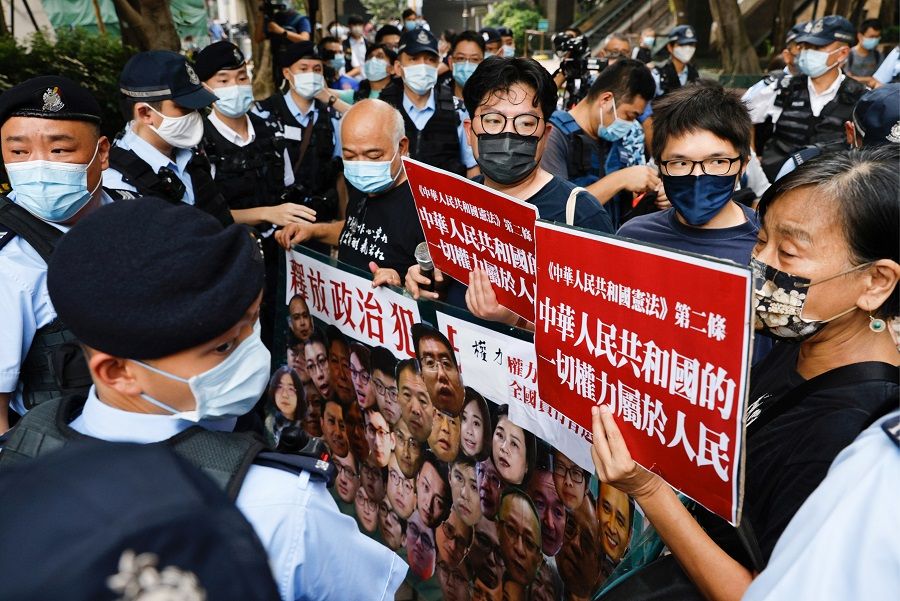
At present, anti-discrimination ordinances in Hong Kong only cover sexual and racial discrimination and not intraracial discrimination. Thus, while many Hong Kongers have indeed committed discriminatory acts against mainlanders in recent years, the authorities are unable to prosecute them. This is the main reason why the Hong Kong government has decided to amend the law this time.
However, it must be noted that amending anti-discrimination ordinances only addresses the symptoms of the problem but does not solve the root of it.
The Hong Kong government must clearly understand that escalating tensions between mainlanders and Hong Kongers in recent years actually involve cultural differences between the two regions and problems with the distribution of social resources, among others.
Hong Kongers' populist behaviour of discriminating mainlanders is like a drunkard raising a ruckus at a posh dinner party - while people frown upon such behaviour, it objectively exposes many social problems that have always stayed hidden in the past.
The Hong Kong government must clearly understand that escalating tensions between mainlanders and Hong Kongers in recent years actually involve cultural differences between the two regions and problems with the distribution of social resources, among others. Then only can they get to the root of the issue, prescribe the right medicine, and completely change Hong Kongers' discriminatory behaviour against mainlanders.
Related: [Photo story] Hong Kong national security law: A different birthday for Hong Kong | Hong Kongers moving to Taiwan: Temporary haven or permanent home? | Mainland Chinese media fails to influence Hong Kong voters | Hong Kong must be governed by 'patriots'. So who are the 'patriots'? | Hong Kong will move into another period of unrest | Wherein lies the future of Hong Kong?
